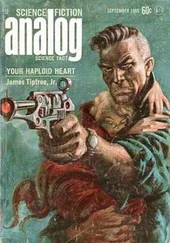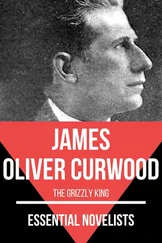"He's fine. We're both fine. Just tell Hope and Louisa that I love them and that I'm looking forward to seeing them. Okay?"
"Of course," she said. And then it suddenly occurred to her that she didn't know where he was going in Israel. "Where will you be? What hospital?"
"I'm sorry, Elizabeth. I don't have any details, but I didn't want to wait to call you."
"No. No. That's okay," she said and then thought for a moment. "The girls and I will be on the next plane to Israel. When you get to the hospital, call Joshua and Liana. Tell them where you are, and when I arrive I'll call them for the message."
"Joshua and Liana?" Decker asked, surprised at the apparent familiarity. "You mean the Rosens?"
"Of course, Decker. They've been a great help and support to me while you've been gone. They're such wonderful people. Here's their number."
Decker took down the number. "I've got to go now," he said and then paused to be sure she would hear him. "I love you," he said softly but clearly.
"I love you!" she answered.
The Swedish commander arranged for two trucks and a squad of armed men to take Decker and Tom the 120 kilometers to the Israeli border. From there Israeli security would take them to a hospital in Tel Aviv. But Ambassador Hansen had other plans. Hansen was a good politician and here was an opportunity for some very positive publicity. It was, after all, his convoy that had rescued them.
When their convoy arrived in Israel, Tom and Decker were greeted by reporters from four international news agencies who had been called from Lebanon by Ambassador Hansen's aide. There were more reporters at the Tel-Hashomer hospital in Tel Aviv. Hansen handled questions from the press himself 'in order to take the burden off the boys,' he said. He agreed to allow the press to take a few pictures of Tom and Decker, but curiously managed to figure prominently in each. Neither Tom nor Decker really minded. They had talked and joked together on the trip through Lebanon and to Tel Aviv. They liked Hansen – he was a 'jolly good' sort. He was also a politician; getting publicity was part of his job. They were just happy to be free.
After they checked into the hospital, Decker phoned the Rosens. Feeling more his old self, he decided to be a little playful. "Joshua," he said as though nothing unusual had happened, "this is Decker. So where have you been lately? I haven't seen you around."
"That'll do you no good, Decker Hawthorne," Rosen answered. "I know all about you and Tom. Elizabeth called us as soon as she made her plane reservations to tell us the good news. Besides, you've been on television all afternoon."
Decker laughed warmly. "When will she get in?"
"Just a second. Liana! "Rosen called to his wife. "Decker's on the phone. What time did Elizabeth say her plane would be arriving?"
There was a pause. Liana took advantage of her husband's poor memory for such things, and took the phone away from him. "Hello, Decker," she said. "Welcome home!"
"Thanks Liana. It's good to be home," he answered, by which he meant anywhere away from Lebanon.
"I saw you on TV," she said. "You're skin and bones."
"Yeah, well I didn't care for the menu."
"You know, I make some of the best chicken soup."
"Tell him about Elizabeth, already," Decker could hear Joshua saying in the background.
"Oh, yes. Elizabeth's plane will be here tomorrow at 11:36 a.m. Don't you worry about a thing. Joshua and I will pick up her and the children at the airport and bring them to the hospital. If you'd like," she added as an aside, "I'll bring you some of my chicken soup. I've heard hospital food is atrocious."
Decker appreciated their kindness. "Sure, Liana; sounds great."
Decker called the Washington office ofNewsWorld, where it was nine in the morning, and asked to speak to his editor, Tom Wattenburg. He was all ready to say, "Hi, Tom. This is Decker. Any calls for me?" when the switchboard operator said that Tom Wattenburg had retired and that his replacement was Hank Asher.
"Hank," Decker said when Asher came to the phone, "you mean they promoted you ahead of me?"
"Well, if you'd show up for work once in a while," Asher responded. "And by the way, I've got a bone to pick with you." It took a second for Decker to catch on that Asher wasn't really mad about something, but was just kidding the kidder. "I get up this morning and what do I see? Your ugly mug on the Today Show. You guys called NEC but you didn't notify your own magazine! And another thing, you took the key to the hotel room when you left and I ended up havin' to pay for it: cost me four bucks."
"Hey, we didn't have anything to do with calling NBC," Decker said in his defense. "But no kidding? The Today Show?'
"Yeah, and seems like everywhere else, too," he answered, trying to sound disgusted. "But at least they mentioned that you guys work for News World." Actually the publicity for NewsWorldwas great and would certainly boost sales for the edition Asher had planned for Tom and Decker's 'first-person' article on their lives as hostages.
Tel Aviv, Israel
The next morning as he shaved and brushed his teeth, Decker examined his face in the mirror. He was getting used to his skeletal appearance, but now he was thinking of Elizabeth. How would she react? The important thing was that he was back. In a few months he'd be back to normal physically. It was best to concentrate on the positive. What would never be "back to normal" was the way he felt about her. The bittersweet truth was that in his isolation he had come to love her in a way that he never could have otherwise.
Because of her flight, Elizabeth probably had not seen him on television, so when she walked in the door of the hospital in a few hours she would be seeing him for the first time. As he finished brushing his teeth, Decker noticed a box of sterile cotton balls and was struck by one of those crazy ideas that sometimes hit him. He stuffed several pieces in his cheeks to see if it would make his face look fuller. Looking in the mirror, it appeared he had mumps. Decker laughed so hard he almost swallowed one of the cotton balls. Fortunately, these ideas usually only hit him when he was alone.
One thing was certain, though. Decker did not want to be wearing a hospital gown when Elizabeth arrived. He tried to charm a nurse into doing some shopping for him, but to no avail. Then he thought of Hansen. Decker figured Hansen owed him and Tom a favor for all the good publicity, so he called the British Embassy. This time he was in luck. Hansen sent over two aides and a local tailor who measured Decker and Tom for suits. The aides did some quick shopping at Polgat's on Ramat Alenby (Alenby Street), an outlet of fine men's clothes. They brought the suits to the hospital, along with the tailor and a sewing machine, and the tailor hemmed the suits on the spot.
When Elizabeth arrived, Decker and Tom were sitting in the hospital lobby sipping tea and reading the English edition of the Jerusalem Post. They looked like transplants from a fancy English gentlemen's club, an appearance which they played to the hilt. Theact worked fine until Elizabeth's and Decker's eyes met. Then it was all hugs, kisses, and tears. Despite the suit, Elizabeth immediately realized the seriousness of Decker's condition as she put her arms around him. The bones in his back were easily distinguishable through the fabric. Instinctively she understood what Decker was trying to do and tried to not look too worried.
Liana Rosen put down her thermos of chicken soup and hugged Tom. Hope and Louisa jointly hugged their dad and somehow the hugs merged. Soon it evolved into a mass hug. Even Scott Rosen, who had come along with his parents, joined in.
After a few moments of this they sat down to talk. Elizabeth sat beside Decker and they held hands as they all talked about what had happened over the last three years. On the other side of Decker, Hope and Louisa took turns sitting next to their father. Decker was amazed at how much his daughters had changed. Hope was now sixteen and Louisa, eleven. He had never noticed how much they both looked like their mother. He had missed so much of their lives. Decker tried not to focus on his regrets.
Читать дальше












